Coach Andrzej Sadej caps epic career with focus on Para judo
Inducted into Judo Canada Hall of Fame and receives Lifetime Achievement Award from CAC in same week
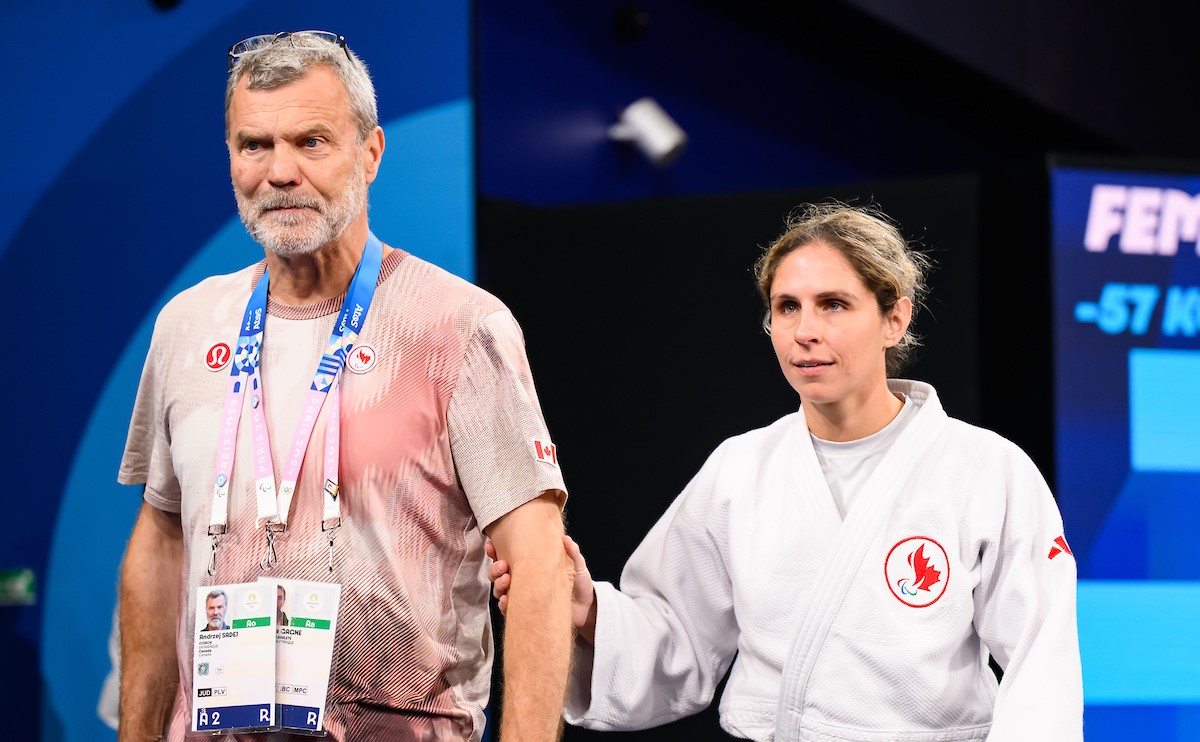
OTTAWA – When Andrzej Sadej discusses his life journey in sport there are all the elements of a great movie or novel: heartbreak, intrigue, drama, risks, adventure and it all concludes with triumph.
But this is a true story.
Born in Poland under the Soviet scepter, Sadej overcame many challenges to become a master in his profession. Through it all there was a common thread: judo.
And earlier this month, the 66-year-old native of Bydgoszcz was honoured twice in the same weekend. He received the Coaching Association of Canada’s Lifetime Achievement Award in Regina on November 15 and the next day in Montreal he was inducted into the Judo Canada Hall of Fame.
‘’Everything he’s ever done has been out of the kindness of his heart and in hopes to make our world a better place,’’ said Sadej’s star pupil Priscilla Gagné, a silver medallist at the 2020 Paralympic Games.
‘’He is a strong, humble and talented coach who I have had the privilege and honour of working with for a decade.”
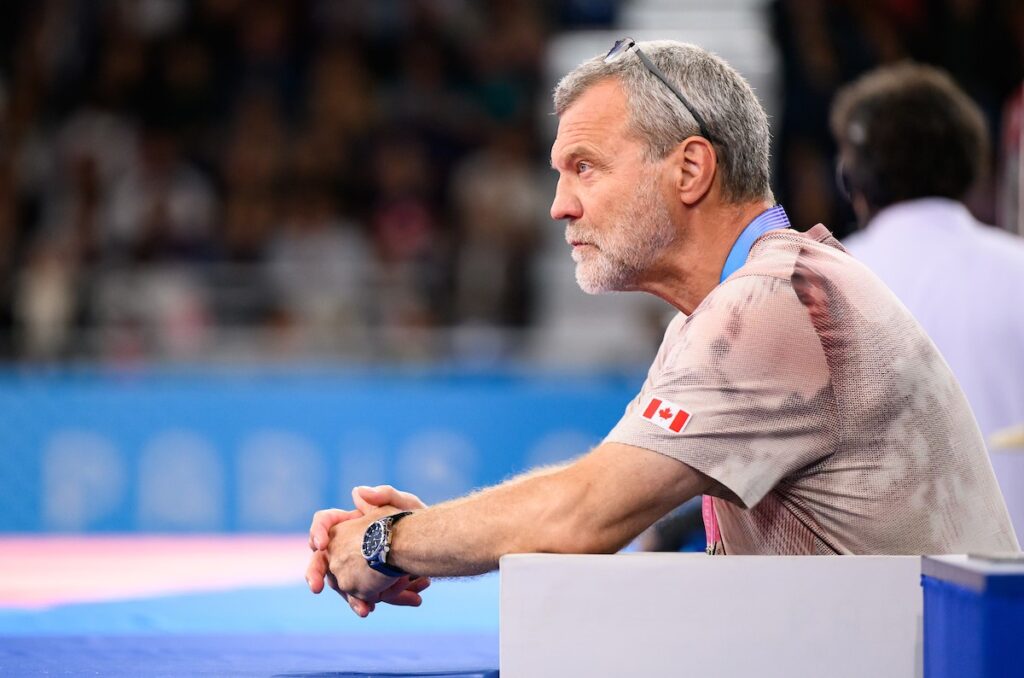
Childhood in Poland
Sadej was bullied in school. Small for his age in his formative years, classmates took delight in harassing him. While in high school, his physical education teacher introduced judo in class and noticed Sadej showed some early skills.
Sadej had also watched TV highlights from an international tournament that was held in Warsaw.
‘’The teacher basically told his class – with his eyes on the bullies – that the small person could beat you all,’’ Sadej recalled. ‘’He set up some mats and he asked me to fight each one and I did beat them all one after another.’’
‘’Of course he recommended that I join a program and I did.’’
Life as a competitor
With the Polish national team, Sadej became one of the top judokas in the world.
He was an eight-time Polish national champion, won four European Championships bronze medals, and was a three-time medallist at the World University Championships.
He earned his Master’s degree from PE Academy in Wroclaw.
In 1984, Sadej appeared primed to reach the pinnacle of his career as an Olympian. However, Poland followed a Soviet-led boycott of the L.A. Games.
‘’That was a huge disappointment for me,’’ Sadej said. ‘’I was good enough at that point to be a contender for the team. The Games were a driving force for me and that became a big factor in my decision to eventually leave my country.’’
Departure from Poland
At age 22, Sadej married Krystyna who had two children from a previous marriage. Her first husband passed away in an accident. The couple would have two more children including Katarzyna, today a professional opera singer.
As a top judoka in his country, Sadej travelled around the world to competitions. Despite the benefits he received as a national team athlete, the freedom he tasted outside the Iron Curtain was very alluring. But there was no way he was going to leave without his family.
‘’In his Judo Canada Hall of Fame induction ceremony, he recognized his family and his wife who made sacrifices to allow him to fulfill his career,’’ said Gagné. ‘’He’s a family man through and through, he gives all the credit to his wife for supporting him and encouraging him to take this journey as a coach.’’
By the late 1980s the Soviet empire was starting to crumble and nowhere was the call for change stronger than in Poland under the Solidarity movement led by Lech Walesa.
Sadej decided to capitalize on the confusion that arose during that change to make his dash west with wife and children in tow.
‘’I found people to get my proper papers and once we had it, the day after we left Poland in my car for West Berlin and never looked back.’’
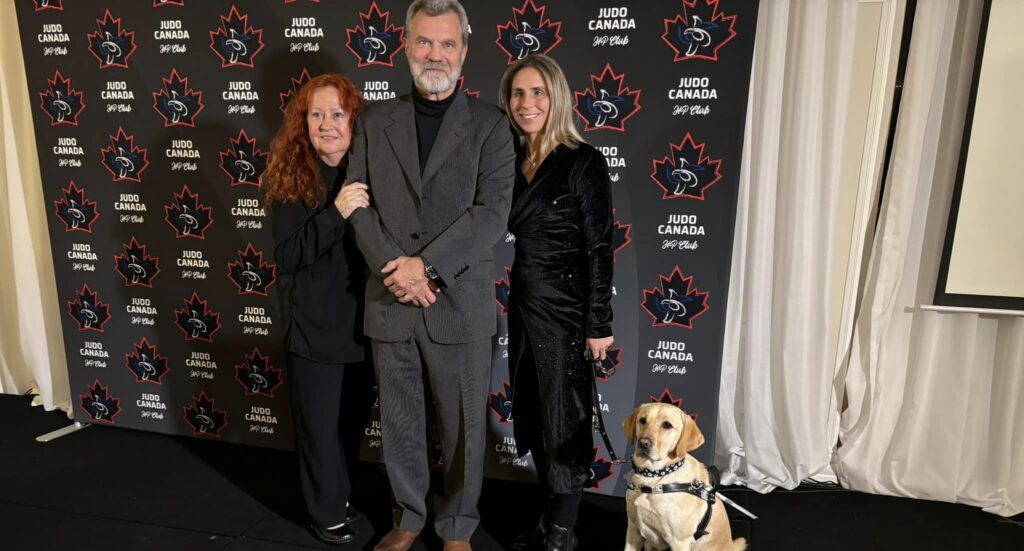
New life in Canada
After a short period in Germany, Sadej landed in Canada on July 25, 1989, with rudimentary English to begin a new life with his family. He first resided in the Toronto area and while judo coaching opportunities arose, he didn’t think it would be his professional career in Canada.
‘’At that time, 99 percent of the judo clubs in Canada were run by volunteers,’’ said Sadej, now an Ottawa resident. ‘’It was a very different environment than Poland or Germany.”
Sadej would become one of the iconic faces of Canadian judo. His perseverance and dedication spearheaded the advancement of the sport.
‘’I’m kind of anxious realizing that it’s almost the end of the road,” he told CPC this week. “It started 55 years ago when I fell in love with the sport and I was able to carry it through.”
He first made a big impact as a national coach from 1990 to 1996, including helping coach Nicolas Gill to a historic bronze medal at the 1992 Olympic Games.
Afterwards, he joined Judo Canada’s administration team including as Sports Director. He oversaw human resources, program transitions and long-term athlete development.
‘’It’s a fantastic life journey,’’ he said. ‘’A lot of overwhelming emotions. There were a lot of people from that time who are no longer with us. People I respected, some of whom actually hired me.’’
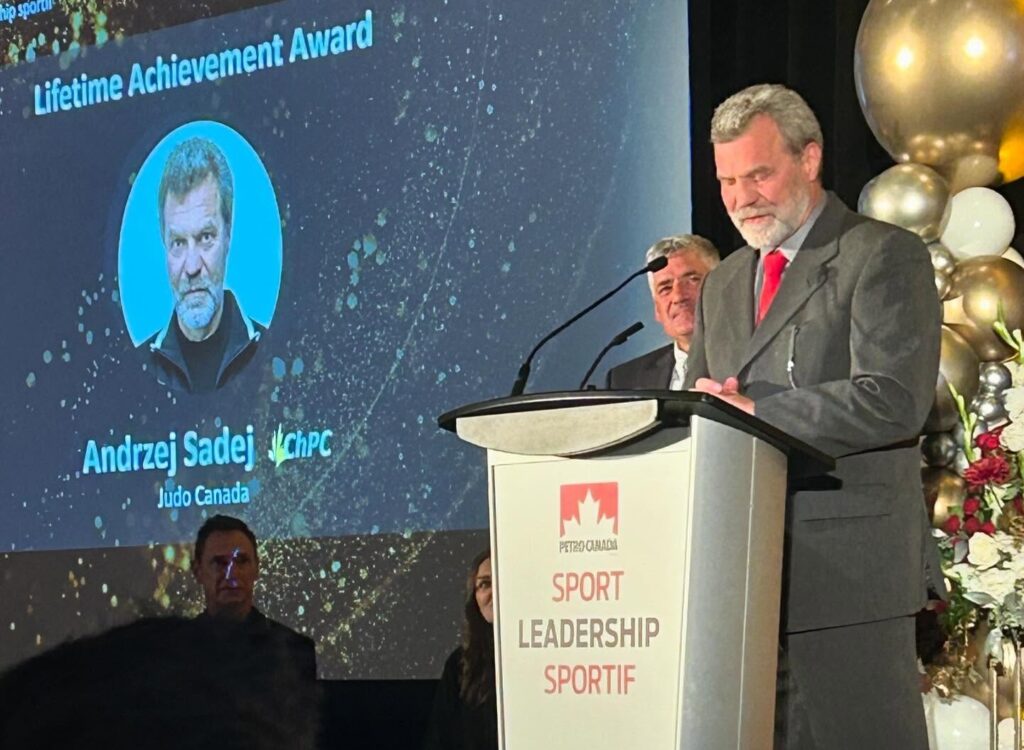
The return to coaching in Para judo
The journey continued in 2014. Sadej returned to the tatamis as the Paralympic program’s national coach.
“I knew I was ready to come to this program,’’ Sadej said. “It just changed me, as a person, as a human being. It was the discovery of a completely new dimension of life, working with people with real challenges with a bigger appreciation of life than the majority of us.’’
Again, under Sadej’s tutelage there were historic firsts.
In 2018, Gagné became Canada’s first female world championships medallist in the Paralympic program and continued to maintain her status as a top fighter ever since including the medal in Tokyo.
‘’Andrzej has contributed to the Paralympic movement and as a result, has reshaped Paralympic judo,’’ said Gagné. “It is in large part thanks to his advocacy, his compassion, and his relentless determination.’’
One of the first Para judokas Sadej met was Tony Walby, who competed at the 2012 and 2016 Paralympic Games and continues to be a strong advocate for Para judo and the Paralympic movement.
‘’Coach Sadej brought stability, experience and leadership to the Para judo program in Canada,’’ Walby said.
‘’Thanks to his tireless work with coaches, athletes, and other leaders in the Para sport community, the Para judo program in Canada has a foundation that should carry it far into the future.’’
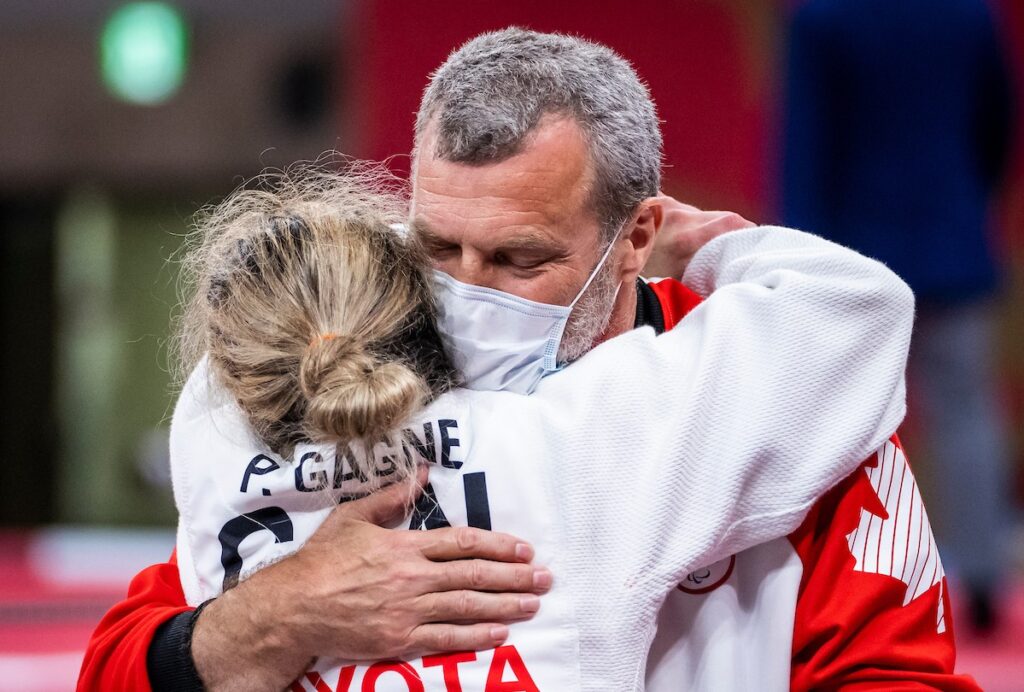
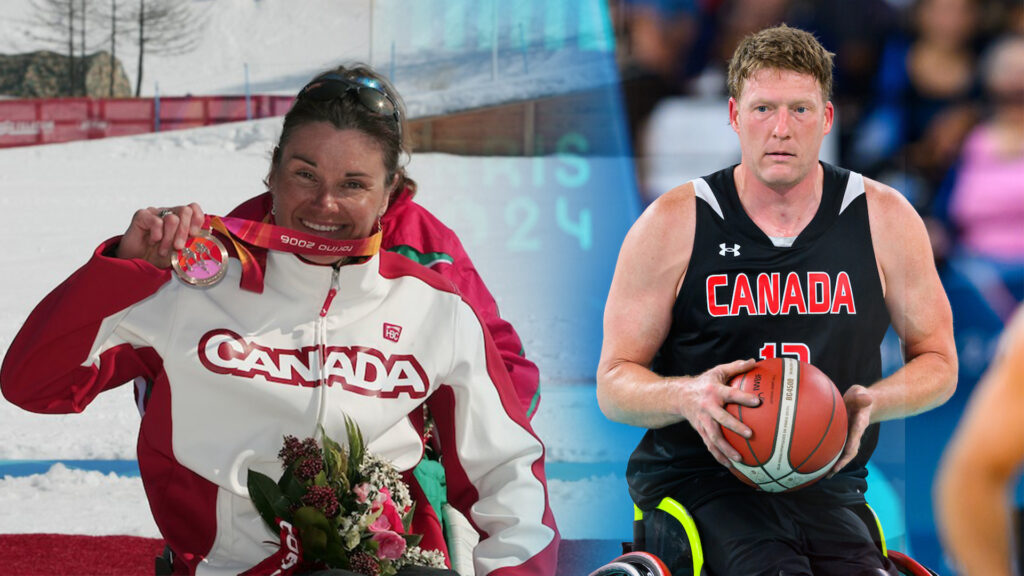
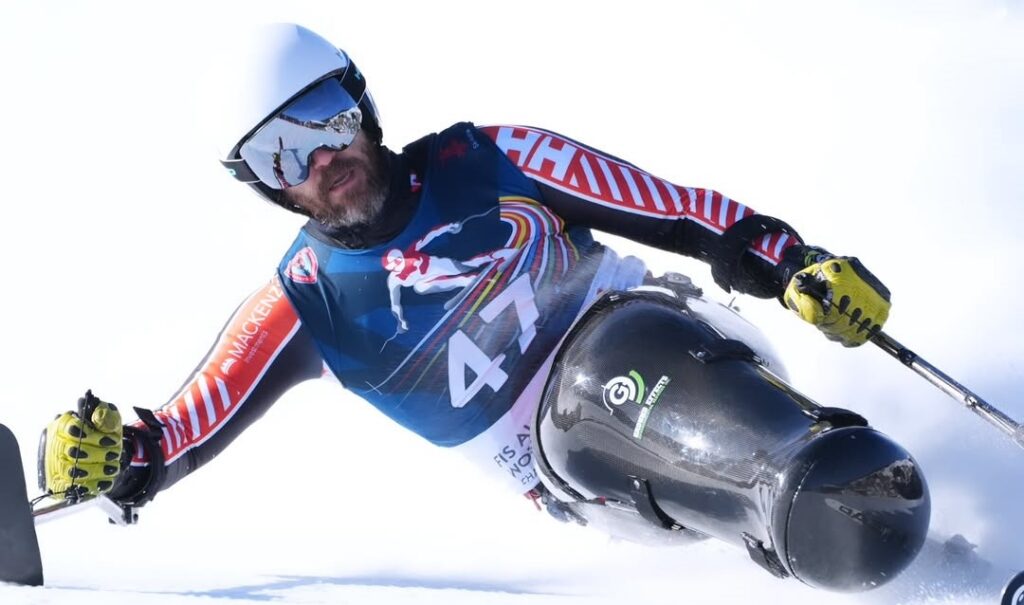
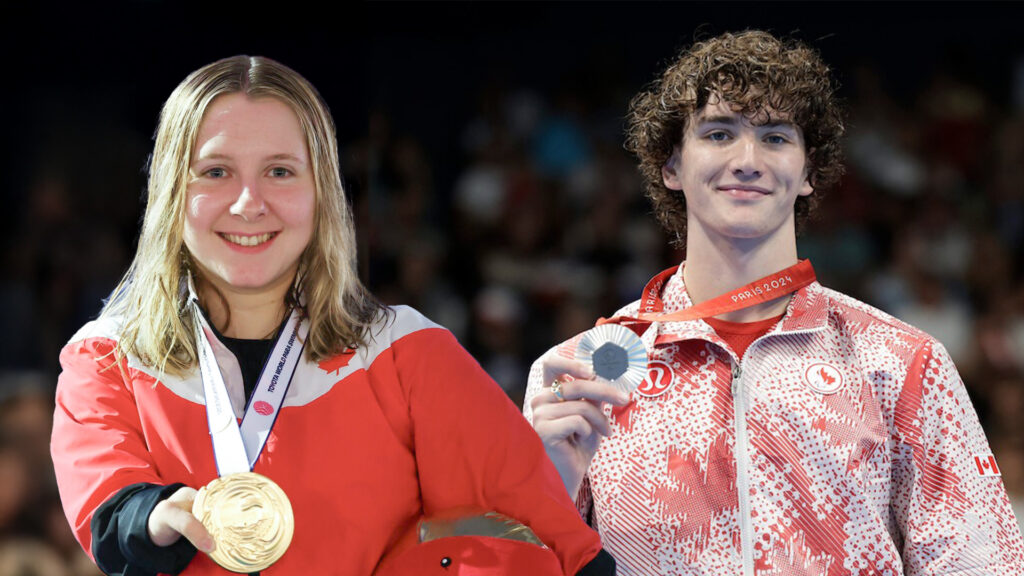
"*" indicates required fields
"*" indicates required fields